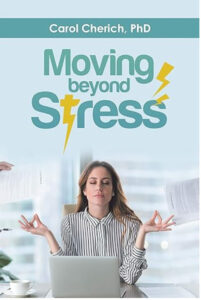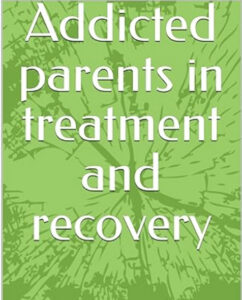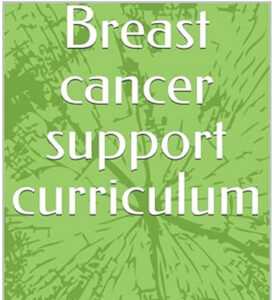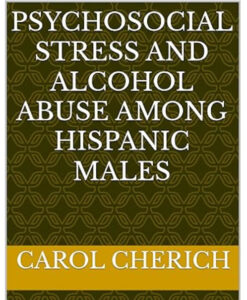Moving Beyond Stress
In 2002, people in the United States, according to a 2003 study, purchased nearly $17.2 billion worth of antidepressants and antianxiety drugs, up more than 10 percent from 2001. Americans spent $1.1 billion in the same year on just two of the major prescription sleeping pills, to say nothing of the over-the-counter brands and seven of the top ten best-selling drugs for stress.
So many of our concerns stem from stress and anxiety that stress has become the invisible disease of the twenty-first century. But stress is not the enemy; it is built into our systems to protect us from danger and to help us survive.
In Moving beyond Stress, author Dr. Carol Cherich offers a learning tool that focuses on stress reduction and provides quizzes for measuring what is learned. The lessons center on identifying what stress is, how to decrease stressors, and how to de-stress using breathing techniques.
A simplified teaching guide that functions as a quick desk reference and resource, Moving beyond Stress reminds us we must pay attention to when we are feeling stressed, learn alternative ways of coping with the stressors, and find the fun in life.
Addicted Parents in Recovery & Treatment
Abstract The project was designed to address the high relapse rate among substance abusing addict parents and treatment at Seton house, Providence Hospital in Washington, D.C. Literature review showed that the contributing factors were related to poverty, low levels of education, unemployment, limited resources, poor coping skills, medication non-compliance, and homelessness problems. This population also has a history of substance abuse and mental illness which is classified as dually diagnosed.
A needs assessment was conducted during the summer of 1996 with the target population and key informants at Seton house and various other recovery programs throughout the city. A relapse prevention curriculum was developed and implemented during the months of December 1996 and January 1997. The objectives were to increase the client’s knowledge base and understanding of the four modules of the relapse prevention curriculum which included: stress management, parenting skills, childcare resources, and money management skills.
A pre-experimental method was conducted with the inpatient and outpatient clients in the treatment program. The findings showed a need for stress management to decrease triggers, improved parenting skills, increased access to child care resources, and improved money management skills.
Evaluation of the findings showed a success rate among participants in their pre and post test scores. The finding suggests an increased knowledge of the disease process helps to reinforce recovery.
Chair Yoga
Cherich is a 200-hour level certified Yoga instructor.
Dr. Cherich has been a licensed clinician in both mental health and addictions for over fifteen years.
This ebook will focus on Chair Yoga for all ages.
Breast Cancer Support Curriculum
Ebook – self-help, teaching tool, facilitator guide, teacher, counselor, nurse or as a gift to a friend who has been diagnosed with breast cancer as this is an inspirational tool.
Psychosocial Stress and Alcohol Abuse Among Hispanic Males
The project was designed to address the high relapse rate among substance abusing addict parents and treatment at Seton house, Providence Hospital in Washington, D.C. Literature review showed that the contributing factors were related to poverty, low levels of education, unemployment, limited resources, poor coping skills, medication non-compliance, and homelessness problems. This population also has a history of substance abuse and mental illness which is classified as dually diagnosed.
A needs assessment was conducted during the summer of 1996 with the target population and key informants at Seton house and various other recovery programs throughout the city. A relapse prevention curriculum was developed and implemented during the months of December 1996 and January 1997. The objectives were to increase the client’s knowledge base and understanding of the four modules of the relapse prevention curriculum which included: stress management, parenting skills, childcare resources, and money management skills.
A pre-experimental method was conducted with the inpatient and outpatient clients in the treatment program. The findings showed a need for stress management to decrease triggers, improved parenting skills, increased access to child care resources, and improved money management skills. Evaluation of the findings showed a success rate among participants in their pre and post test scores.
The finding suggests an increased knowledge of the disease process helps to reinforce recovery.





